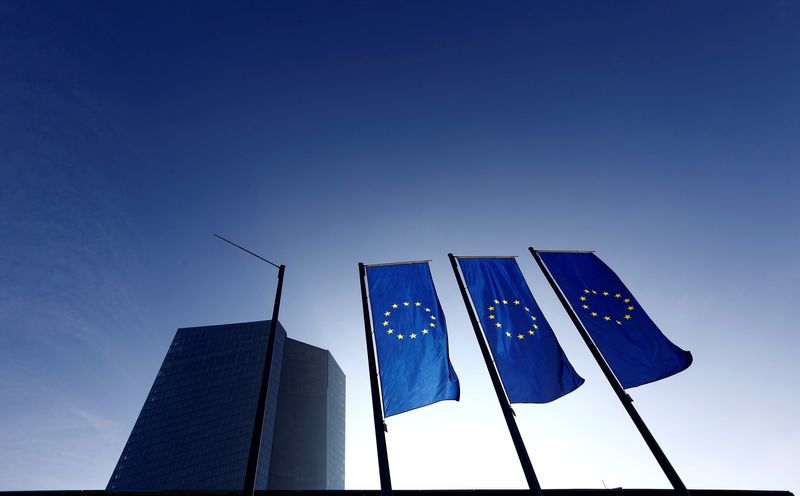FRANKFURT (Reuters) - The European Central Bank raised interest rates for the 10th meeting in a row on Thursday to counter stubborn inflation but signalled that it is likely done tightening policy.
The central bank for the 20 countries that use the euro lifted its deposit rate to 4% from 3.75%, taking it to an all-time-high. Markets and economists expect the policy tightening move to be the ECB's last and now anticipate a lengthy pause, followed by rate cuts in the second half of next year.
Markets had seen unchanged rates as the most likely outcome of Thursday's meeting only days ago but expectations shifted towards a hike after a source close to the discussions said the ECB would raise its 2024 inflation projection in new forecasts.
"Based on its current assessment, the Governing Council considers that the key ECB interest rates have reached levels that, maintained for a sufficiently long duration, will make a substantial contribution to the timely return of inflation to the target," the ECB said in a statement.
Policymakers have been pulled in opposing directions by stubbornly high price growth figures and rising recession fears.
Inflation is still stuck above 5% and markets do not see it falling back to the ECB's 2% target even in the longer term as an exceptionally tight labour market pushes up wages and high energy costs keep the pressure on prices.
But growth prospects are fading quickly, partly due to higher interest rates, and even services - long the bloc's bright spot - have started to weaken, raising the risk the economy will slip into recession.
The ECB's new economic projections reflect these shifts and could stoke fears of stagflation, where a period of economic stagnation is accompanied by high inflation.
Inflation is now seen at 3.2% next year after a 3.0% forecast three months ago while growth projections were cut to 0.7% for this year and 1.0% for 2024.
"Inflation continues to decline but is still expected to remain too high for too long," the ECB added. "The Governing Council is determined to ensure that inflation returns to its 2% medium-term target in a timely manner."
"The Governing Council’s future decisions will ensure that the key ECB interest rates will be set at sufficiently restrictive levels for as long as necessary," it added.

The gap between opposing camps in the Governing Council had appeared modest ahead of Thursday's meeting, with debate centred on whether the ECB had done enough or if one last rate hike was needed to get inflation down to target sometime in 2025.
Attention now turns to ECB President Christine Lagarde's 1245 GMT news conference.